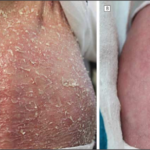Type 1 diabetes mellitus (T1D) is an autoimmune disorder characterized by the destruction of insulin-producing beta cells in the pancreas. The progression of T1D is categorized into three stages:

- Stage 1: Presence of multiple autoantibodies with normal blood glucose levels and no symptoms.
- Stage 2: Multiple autoantibodies accompanied by dysglycemia, still asymptomatic.
- Stage 3: Onset of clinical symptoms such as hyperglycemia, necessitating insulin therapy.
Delaying the transition to stage 3 is crucial for improving patient outcomes and quality of life.
Immunotherapeutic Interventions
Teplizumab: A Breakthrough in Delaying T1D Progression
Teplizumab, marketed as Tzield, is a monoclonal antibody that targets CD3 on T cells, modulating the immune response responsible for beta-cell destruction. In November 2022, the U.S. Food and Drug Administration approved teplizumab for delaying the onset of stage 3 T1D in individuals aged 8 years and older with stage 2 T1D.
Clinical trials have demonstrated that teplizumab can delay the progression to stage 3 T1D by approximately two years. This delay provides patients with a significant period free from the burdens of insulin therapy and continuous blood glucose monitoring.
Mechanism of Action
Teplizumab binds to the CD3 receptor on T cells, leading to partial activation and subsequent anergy or deletion of autoreactive T cells. This process helps preserve the remaining beta-cell function by reducing the autoimmune attack.
Early Detection and Monitoring
Importance of Screening
Early identification of individuals at risk for T1D is essential for timely intervention. Screening for autoantibodies associated with T1D can detect the disease in its asymptomatic stages. Organizations like TrialNet offer screening programs for relatives of individuals with T1D, as they have a higher risk of developing the disease.
Monitoring Progression
Regular monitoring of autoantibody levels and blood glucose can help assess disease progression. Individuals identified in stage 1 or 2 can benefit from closer surveillance and early therapeutic interventions to delay the onset of stage 3.
Lifestyle and Dietary Considerations
Nutritional Interventions
While immunotherapy offers promising results, lifestyle and dietary modifications may also play a role in delaying T1D progression. Some studies suggest that certain dietary interventions during infancy, such as hydrolyzed infant formula, might reduce the risk of developing T1D, though findings are not conclusive.
Physical Activity
Regular physical activity has been associated with improved immune regulation and may contribute to delaying the onset of T1D. Exercise can enhance insulin sensitivity and support overall metabolic health.
Future Directions in Research
Combination Therapies
Research is ongoing to explore the efficacy of combining teplizumab with other immunomodulatory agents to achieve more durable responses in delaying T1D progression. Combining therapies may target multiple pathways involved in the autoimmune process, offering a synergistic effect.
Vaccine Development
Investigations into vaccines targeting specific autoantigens implicated in T1D are underway. The goal is to induce immune tolerance and prevent the autoimmune response that leads to beta-cell destruction.

